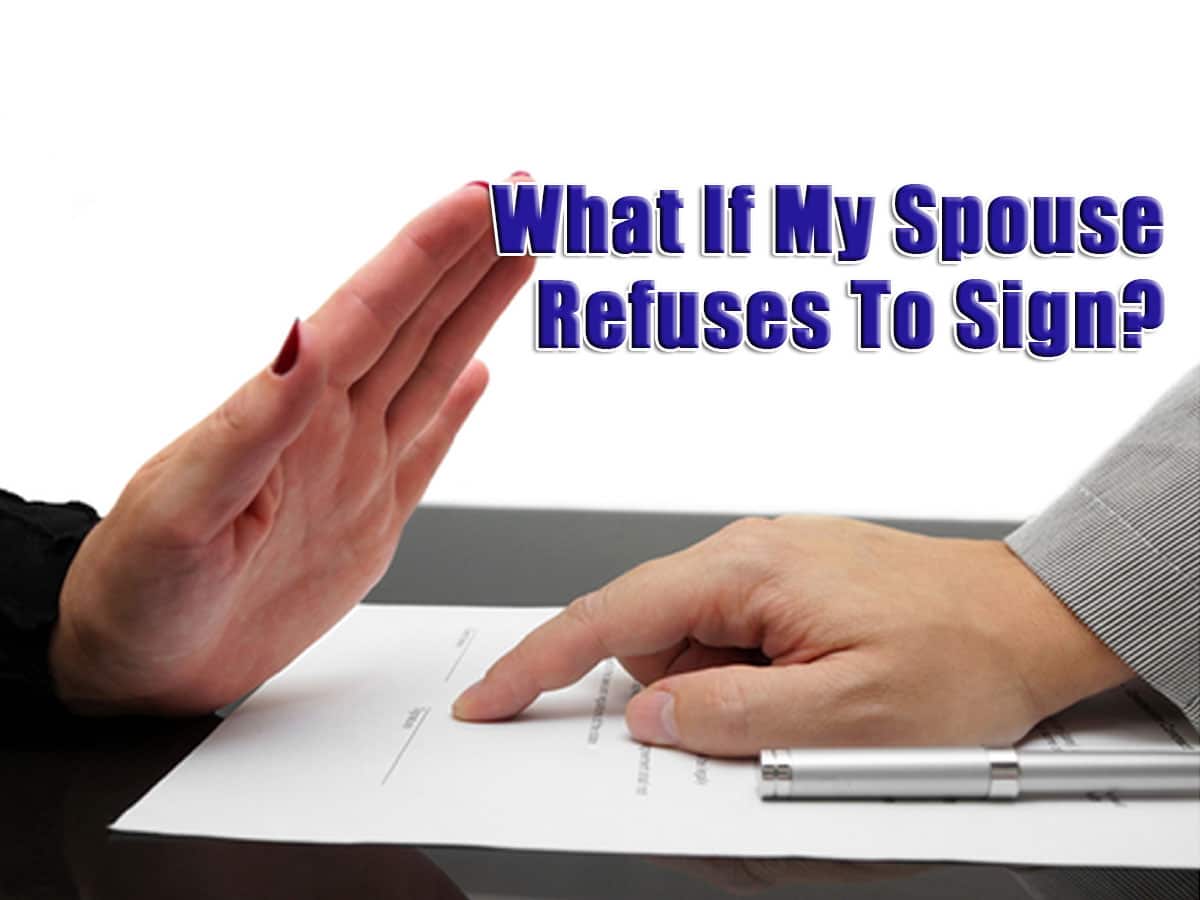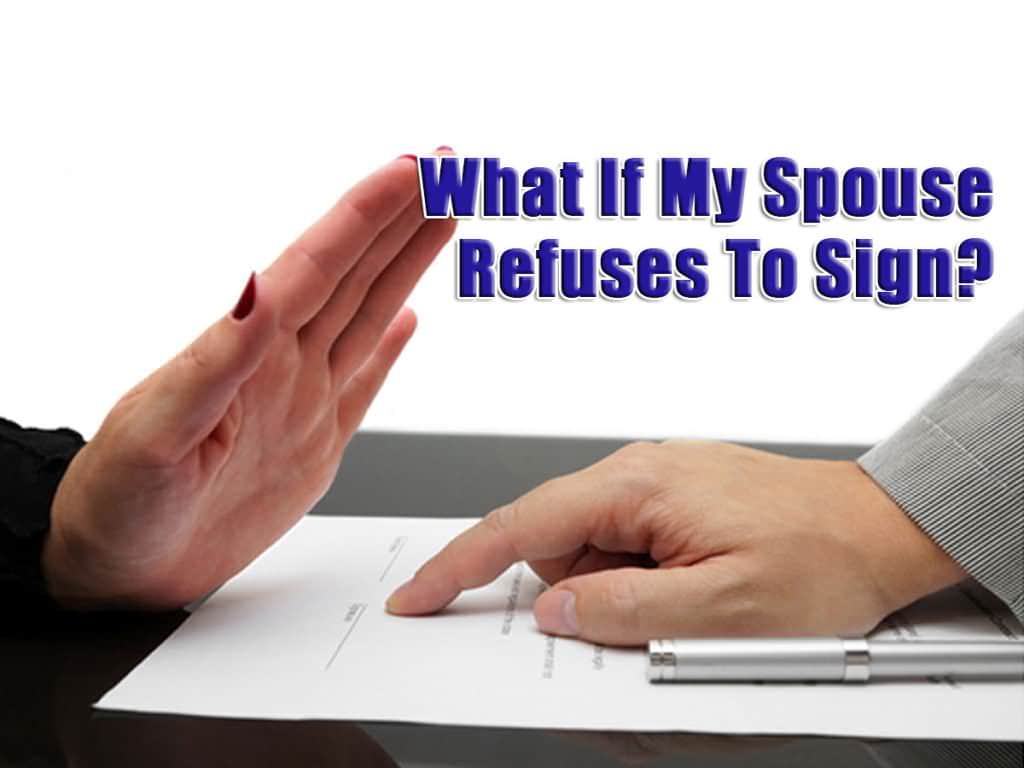Spouse Won’t Sign Divorce Papers on Long Island Solutions

As a divorce lawyer practicing on Long Island for many years, I know that up until 2010, if you lived in New York and your spouse refused to sign divorce papers, he or she could complicate your divorce and make it more lengthy and expensive by contesting the grounds for divorce.
Fortunately, this issue was largely addressed by New York’s adoption of the No-Fault divorce law. In a no-fault divorce, courts can grant a divorce based upon “irreconcilable differences” in the marriage, rather than requiring that fault be placed on one spouse or the other.
No Fault Divorce Addresses Some Issues When Spouse Won’t Sign Divorce Papers on Long Island
Prior to No Fault divorce, it was common for a spouse to refuse to sign divorce papers that placed the blame on him or her. Now, if a spouse refuses to sign papers that say the marriage has broken down, the Suffolk County and Nassau County courts take note that, when one spouse wants a divorce and the other does not, this is a breakdown of the marriage on the most fundamental level and is a valid basis for divorce. The court will honor the irreconcilable differences ground for divorce if one spouse swears to the breakdown under oath. The no-fault law removes this hurdle, but does not by any means resolve all of the issues that must be addressed in divorce.
How Does Serving Divorce Papers Work on Long Island?
To commence the divorce proceeding, your spouse must be served with a Summons and Complaint. These documents notify your spouse of the proceeding and give him or her a chance to appear. If your spouse does not appear or reply, you may be able to move forward with the divorce without his or her consent. You must prove that your spouse was served with the Summons and Complaint, which can be shown by a signed affidavit of service of a process server. The court will likely grant a default judgment against your spouse, and you’ll likely receive what you have asked for in the complaint.
Can My Spouse Contest My Divorce on Long Island?
However, if your spouse does appear and contest the divorce, this complicates matters. While he or she cannot stop the proceeding, and cannot contest the No-Fault grounds for the divorce, he or she can certainly prolong or complicate matters by contesting other issues, like distribution of property or child custody and visitation. The judge will hear the evidence and testimony on all issues that are in dispute. This process will cost you both time and money, but once a judge decides these issues, the divorce will be granted. If you used any of New York’s Fault grounds as the basis for your divorce, such as adultery or cruel treatment, you will be asked to prove that this type of marital misconduct occurred, and this will be an additional area that will have to be litigated. Any issues you can settle with your spouse outside of court will save the both of you time, money and stress.
Divorce Mediation Saves Time, Money & Stress on Long Island
One alternative to a drawn out court proceeding is divorce mediation with a third party divorce mediator. This is a far less costly and time intensive process when you and your spouse are willing to negotiate and make some compromises. Divorce is never a quick and painless process, and there are inevitably some concessions that will need to be made to end your marriage, which is effectively the breaking a legal contract. Decide which issues are most important to you and be willing to make compromises on other, less important ones. The more that you can cultivate a cooperative spirit, the more likely you are to reach a quicker, more peaceful and less financially and emotionally expensive resolution. Unfortunately, many spouses become indignant during divorce, which truly costs them more in the long run.
Finally, one of the most common questions heard by divorce attorneys on Long Island is, “How long will my divorce take?” The answer will depend on the circumstances of your case, but a consultation with an experienced attorney can inform you or general time frames and timelines for your divorce.
If Your Spouse Won’t Sign Divorce Papers Our Experienced, Compassionate Long Island Divorce Lawyers Can Help
If you have questions about your contested divorce, and issues that you and your spouse cannot seem to agree on, it is important that you reach out to an experienced Long Island divorce attorney for advice. The Long Island divorce lawyers at the Law Office of Robert E. Hornberger, P.C. are here to assist you with all of your divorce and family law needs in Suffolk County, Nassau County, and New York City. Call our office today at 631-923-1910 for a free consultation.
SCHEDULE YOUR FREE CONSULTATION TODAY
Call 631-923-1910 or fill in the form below
Schedule your complimentary consultation and case evaluation with our experienced attorneys today. When you call, you’ll speak to our friendly Client Services Director, who will be able to answer your general questions and set up your appointment with an attorney who specializes in your unique case.
At your meeting, your attorney will describe the many options available and determine together which is the right solution for you. By the end of this meeting we’ll all understand how we can best help you to move forward.
No Cost or Obligation
There is no cost or obligation for this initial consultation. It is simply an opportunity for us to get to know each other, answer your questions and learn if Hornberger Verbitsky, P.C. is right the right law firm for you. Give us a call at 631-923-1910 or fill in the short form below to schedule your free consultation and case evaluation.
All Fields Are Required
